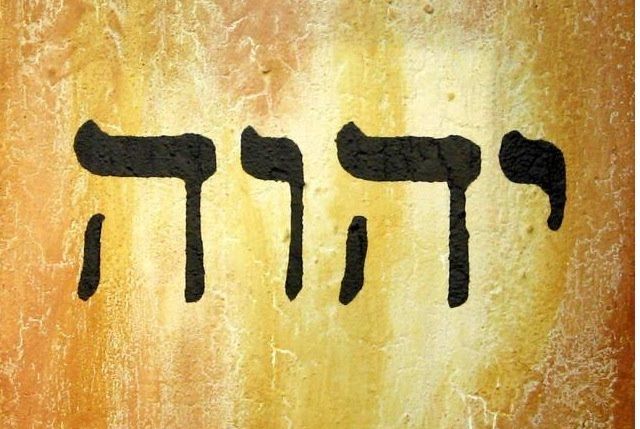
What are the most common “first words” spoken by little children?
In the English-speaking world, “Mama” and “Dadda” head the list. “Yes” and “no” are close behind, followed by “hello” and “bye.” Then comes “cat,” which seems to confirm the reality that felines have now surpassed canines as America’s most popular pet.
Farther Richard Rohr has an alternative thought. The Franciscan priest suggests that the first word spoken by every human being, the world over, is the sacred name of God.
What name is he talking about?
The answer emerges in the third chapter of the Old Testament book of Exodus, where Moses encounters God at the burning bush. He receives the mind-boggling job assignment of leading the Hebrews out of slavery in Egypt. As one might expect, the fearful 80-year-old has a few questions. God encourages him to fire away.
Moses starts with the big one: “Who in the world are you, Lord?” Or as he puts it in Exodus 3:13, “When the people ask, ‘What is your name?’ what should I tell them?”
God’s answer is one of the most mysterious sentences in all of human literature: “I AM WHO I AM. This is what you are to say to the Israelites. I AM has sent me to you” (3:14). What exactly is God trying to say here?
“I AM WHO I AM” (which is typically capitalized in English translations) stands for just four Hebrew consonants, read from right to left in the image above: YHWH. These four letters represent God’s personal name. YHWH appears 6,807 times in the Old Testament and is usually rendered “LORD.”
No one knows how it should be pronounced. Vowels were not included in the original Scripture texts. Centuries before the time of Jesus, the majority of the Jewish people – concerned about breaking the commandment not to take God’s name in vain – stopped speaking the four letters altogether. YHWH has almost literally become The Name That Must Not Be Spoken. Members of the Jewish community who read Hebrew aloud generally substitute Ha Shema (“The Name”) or Adonai (“Lord”) whenever YHWH appears.
Our best guess is that God’s personal name is to be rendered as Yahweh.
What does it signify?
Its underlying meaning remains a mystery, even after 3,000 years of rabbinical reflection. Some believe it should be translated, “I am who am.” In other words, God is God and we are not. He is the ultimate Being in the cosmos. Others prefer, “I am who I am.” That is, “Moses, who I am is none of your business.” This would be an expression of God’s impenetrable identity. Still other scholars believe Yahweh means, “I will be there with you,” or “I am all you need.”
The simplest and perhaps most compelling insight is that God may have wanted his people to think about him every time they took a breath.
Try it. Breathe in: Yah. Breathe out: Weh. “Yah-weh.”
The consonants in YHWH are the only ones in Hebrew in which the speaker doesn’t use the tongue or close the lips. All the other consonants – such as P, K, T, B – explode off the lips or teeth, or spring from the back of the throat. But Yahweh can be said effortlessly. It’s as easy as breathing in and breathing out.
God’s name, in fact, may represent a constant reminder that he is the One who keeps us breathing.
As Richard Rohr observes, the first breath of every newborn baby is God’s name – the first word spoken by every child. And just in case you’re anxious about what you should pray just before you die, don’t worry. With your last breath you will speak God’s name.
Rohr goes on to say that there isn’t a Catholic way of breathing or a Protestant way or an English way or an American way.
There’s just breathing.
You’ve done it your whole life – on average, about 20,000 times a day, whether awake or asleep.
But from time to time, as we catch our breath going from one moment to the next one, we can choose to stop and remember:
Yahweh. God is God.
And he is closer than our next breath.
